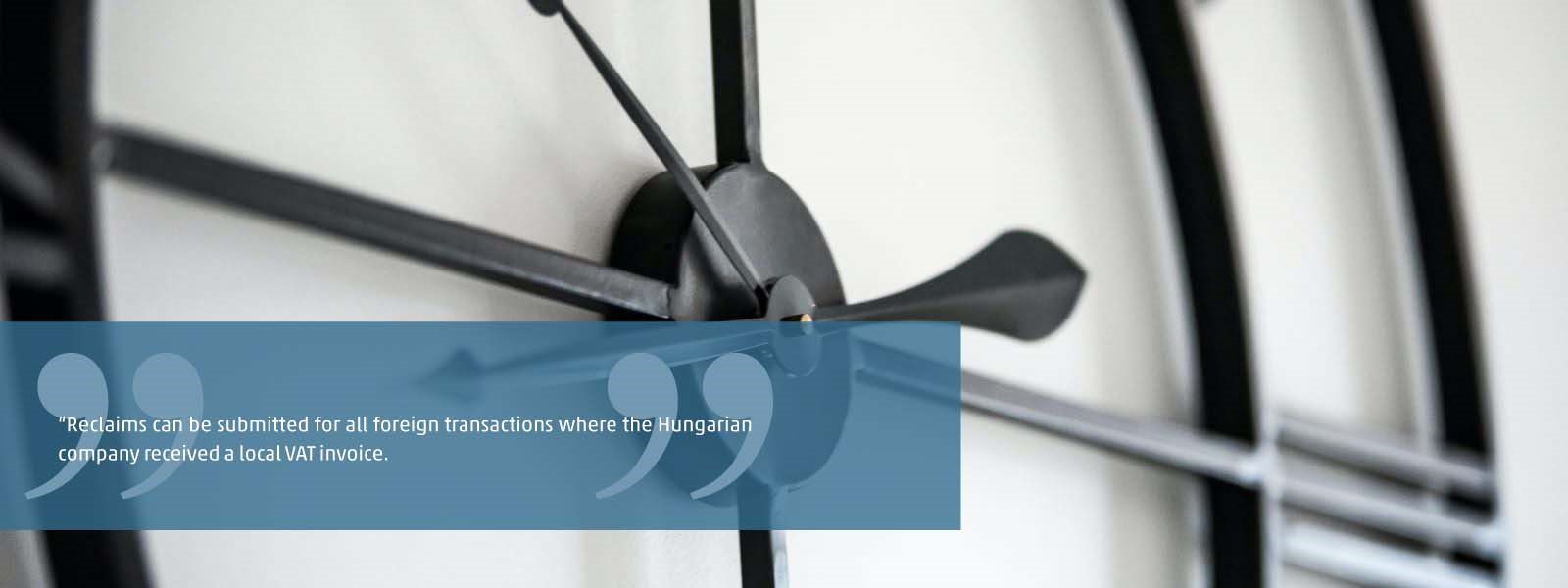After the start of the school year, the first usual annual deadline for most tax advisers is the 30 September deadline for reclaiming foreign VAT. We have summarised the five most important things to look out for if, as a company established in Hungary, you have been involved in any transaction abroad where VAT was charged to your company in the invoice received.
1. Where did the transaction take place?
The deadline for reclaiming foreign VAT applies mainly to VAT charged in European Union countries, because this is essentially what can be reclaimed if the VAT on the service or product is deductible under the laws of that country.
However, Hungary has reciprocity agreements with several non-EU countries, which also allow us to reclaim value-added tax charged in Norway, Liechtenstein, Switzerland, Turkey, Serbia and in the United Kingdom.
2. What conditions must be met?
The main point is that the Hungarian company should not engage in any business transaction in the given foreign country that would result in a permanent establishment in that country. Since in this case, it may be necessary to establish a business presence in the foreign country, even in the form of a tax establishment, a branch or a subsidiary. This always depends on the local tax regime and legal system. This would mean that the given company would have to reclaim the VAT charged in the foreign country in a local VAT return.
3. Most typical transactions
Reclaims can be submitted for all foreign transactions where the Hungarian company received a local VAT invoice, i.e. the place of performance for VAT purposes was the foreign country. This can be the purchase of a product in a given country, if the product was not subsequently sold or transferred to another country, or used in any business transaction in that country. The tax may also be linked to services used abroad by a posted employee (taxi, accommodation, possibly meals, fuel).
4. Deadline for reclaiming foreign VAT and relevant period
The deadline for reclaiming foreign VAT in the case of European Union countries is 30 September (for countries with reciprocity arrangements, the deadlines may differ), and there is no right of redress. Invoices for 2022 can be submitted to the authority in 2023, and the reclaim period cannot be shorter than three months or longer than one year.
5. How and where to submit
Reclaims by Hungarian companies must be sent to the Hungarian tax authority electronically using the ELEKÁFA form (a separate application for each country). For an annual application, the amount requested must be at least 50 euros.
Generally speaking, the Hungarian tax authority will forward the application electronically to the tax authority of the country concerned, which will then assess the merits of the application. If you exercise your right to reclaim based on a reciprocity arrangement, reclaim requests should be sent directly to the tax authority of the foreign country.
The tax authority in the country of the reclaim will issue a decision within four months of the deadline for reclaiming foreign VAT, and communication between the foreign tax authority and the Hungarian company is now entirely electronic. The tax authority may request additional documents and information no more than twice in this procedure (copies of invoices do not usually have to be attached to the original application).
+1: What have I got to lose?
In short: nothing. If the claim is unfounded, the tax is not refunded. There is no penalty for an incorrect application. However, there may be a risk if the Hungarian company is involved in a transaction in which the tax authority determines – based on the invoices and declarations it receives – that the company should register as a taxable entity in the foreign country and file a tax return. In this case though, the tax may also become refundable in the foreign tax return.
If you need help in managing the procedure and meeting the deadline for reclaiming foreign VAT, please do not hesitate to contact us. Our tax department will be happy to help you with submitting your applications.











